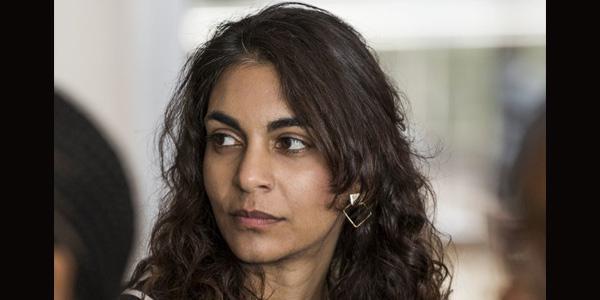Academic-activist reckons radical love required for equitable healthcare
- Wits University
Shehnaz Munshi in the Centre for Health Policy at Wits believes we need to start grappling with the multi-dimensional nature of inequality in public health.

Researchers know that population health and social determinants are intertwined but viewing this through an equity lens could transform the way we begin to think about solutions for a more just world for all.
The Sheiham Family/WitsProgramme on Social Determinants of Health and Health Inequality in the Wits School of Public Health is looking at doing just this – to simultaneously undertake broad and encompassing research while also drilling deeper into understand how public health is affected by every social factor and in turn how this affects society.
Programme manager and associate lecturer Shehnaz Munshi explains that the programme came about in 2015, when Wits alumnus Professor Aubrey Sheiham and his philosopher wife, Dr Helena Sheiham donated R8.8 million to Wits University to support the Vice-Chancellor’s focus on addressing inequality. The Sheiham family donation has been added to since 2015 and is currently valued at R11.398 million.
Aubrey Sheiham, who graduated from Wits in 1957, was a globally recognised epidemiologist and bold disrupter in the field of public dental health. He died in November 2015 at the age of 79.
Investing in understanding inequity in health
“Public health has always looked at social determinants and its impact on health. What’s different about this programme is that we’re saying let’s shift the lens through which we understand health problems and social determinants. Let’s use an equity lens as an entry point to broaden the conversation to understand that health equity goes beyond the health system,” says Munshi. “We need to start grappling with this multi-dimensional nature of inequality. Health is shaped by the economies shaped by whose health is more important. There are innate inequalities and inequities, we know them, but we’ve got to start making a clear link.”
Munshi is a qualified occupational therapist and holds a Master’s in Public Health, Health Systems and Policy Track from Wits. She’s also an activist and a social change agent. She has a distinct vision of how the Sheiham Family Wits Programme can challenge the status quo to add to impactful transformation of public health. She says it’s an approach that extends from personal reflection and responsibility, to community engagement, that goes beyond “the light touch”, as well as interdisciplinary collaboration and approaches to learning and researching that are more inclusive.
“We've got to dismantle and reconstruct the ways we understand how knowledge is produced and accessed in terms of equality and equity. The Sheiham Family programme is exciting in that we are beginning to attract PhD students who are interested in looking at developing different quantitative skills and research method skills.”
An activist for a healthier, more equal nation
Munshi is also a Tekano Fellow, which is a leadership and fellowship community that has a mission to build “a healthier and more equal nation”. In 2018, she was identified as one of one of the Emerging Voices for Global Health (EV4GH). The EV4GH training programme is an initiative of the Institute of Tropical Medicine in Antwerp, Belgium. Its aim is to empower health researchers from the Global South by providing them with intensive skills training and to facilitate their participation in global health conferences.
For Munshi, these programmes and fellowships allow her to commit more deeply to social justice while building her own consciousness, skills and networks between other fellows, who may be lawyers, anthropologists, activists, or involved in the media.
Munshi also talks about “radical love”; it’s a personal philosophy and it’s part of how she sees deep transformation being able to happen. She says for her it’s being unequivocal about taking a firm stance on issues and recognising toxicity in all its forms that should be pushed away or challenged. At the same time, she also believes in making room for more people and for tolerance.
“We have to start to see how gender, race, class, and patriarchy play out in ourselves in order to understand how we are carriers of inequity, but we can also be agents of change.
“My activism is deeply linked to my desire for a loving world. To get to a loving world means I have to embody anti-racism, anti-capitalism, anti-discrimination – I have to be able to undo it inside of me. It is about building pockets of difference where radical love can be practised. Recognising that deep transformational work is required is what I think will be the healing project of South Africa.”
Munshi is also involved with the global People’s Health Movement that is focused on building coalitions and in engaging policy makers for better quality and better access to healthcare. She was previously chairperson of JuPHASA (Junior Public Health Association of South Africa) and co-founder of the PHASA Mental Health special interest group.
Munshi’s personal approach to balance is being able to write poetry and also to pursue her hobby of practising Islamic art.

